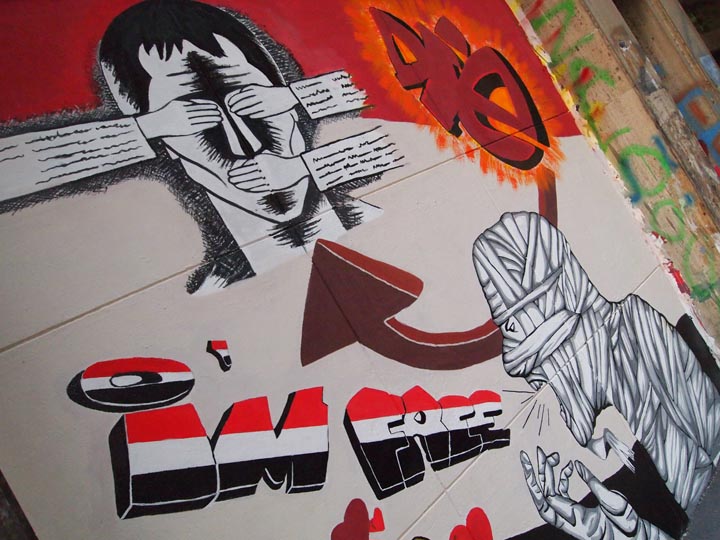
A fierce battle is now taking place between Egypt and America. It is in essence a battle to liberate Egypt from dependence on America.
This is a battle that Egypt chose itself regarding so-called human rights organizations operating in the domains of civil society and human rights. These organizations are a fundamental arm of the United States’ intrusion into Egyptian society. The removal of these organizations was not only a stand against American political and security breaches but also against the wrong policies that almost destroyed Egyptian society and stunted political and cultural life and the media in Egypt. By extension, any battle for national liberation is aimed at cleansing Egyptian life from the clutches of U.S. influence — a reduction of the vandalism Egypt experienced over the 30-year sabotage of all sectors, from agricultural lands to the air to minds, in order to drain the wealth of Egypt, to recruit agents and establish a spy network.
This therefore represents a pivotal battle being fought by the Supreme Council of the Armed Forces in defense of all Egypt. And so far it has resulted in providing 43 defendants to the criminal court, including 19 who incriminated the U.S. for the first time in the history of Egyptian-American relations. This did not occur even during the 1960s under the leadership of Gamal Abdel Nasser, when U.S.-Egyptian relations were at their worst. It is a position that Egypt has not abandoned, according to Prime Minister Dr. Kamal Ganzouri. The position reflects the nationalism and loyalty of the country, and a desire to recapture Egyptian spirit, pride and dignity. In fact, the so-called human rights organizations, whether formally licensed or unlicensed, play a destructive and subversive role of the first degree by serving as tools of espionage and sabotage. All of these organizations receive foreign funding and are suspected of receiving more than $1.2 billion in 2011.
This confirms the seriousness of the destructive role played by these organizations, which are part of the policies that consolidate intervention and which were carried out by the previous regime under the ousted President Mubarak. I firmly believe that attacking and liquidating these organizations are just the beginning of a long process. It will not be these organizations that liberate Egypt; their elimination is merely a step in the long journey initiated by the Supreme Council of the Armed Forces, aimed at returning Egypt to its former glory and its leadership role. Do not forget that America is in a state of complete confusion because of the nationalistic positions unexpected from the Supreme Council of the Armed Forces. This includes the withdrawal of the Egyptian military delegation from the U.S., which ended the visit refusing to accept any statements issued by the U.S. administration — a position reminiscent of the glory of a nationalistic Egypt and similar precedents in our nation’s history.
Generally, we have in Egypt a sound, reasonable foundation that has not changed. It is as our leader, Gamal Abdel Nasser, always said, “When I hear insults directed at me from the U.S. or British administration, I see that I walk on the right path. When they stop the attack, I feel danger and fear; I see that there is a mistake, that something is happening.”
As an application of this rule, the U.S.’ attacks on Egypt confirm the suitability of the official position to protect the nation’s security and withstand U.S. pressure. Two facts remain in the end: First, the U.S. asked the deposed Hosni Mubarak five times to dismiss Field Marshal Hussein Tantawi, who had been unable to implement U.S. demands and desires. America was well aware of the nationalistic tendencies of Field Marshal Tantawi and feared the very special role of the Supreme Council of the Armed Forces in Egypt. Second, the United States insisted on the removal of International Cooperation Minister Dr. Faiza Aboul Naga because she dared to strike down U.S. organizations and their infiltration via such organizations as the National Democratic Institute, the International Republican Institute and Freedom House. It was also because they expressed their willingness to reject indispensable U.S. aid. These leaders are models of the Egyptian nationalist official who disappeared from our political life for over 30 years during the rule of the ousted Hosni Mubarak.

Leave a Reply
You must be logged in to post a comment.